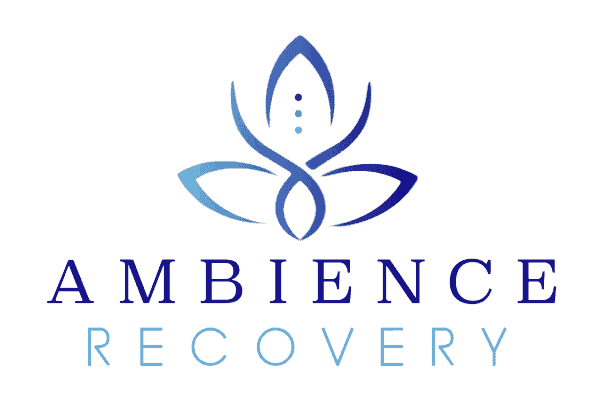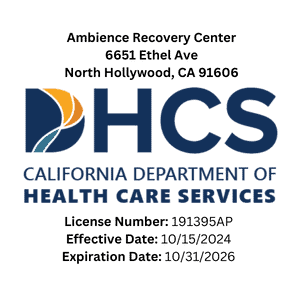Your Path to Rehab: 5 Practical Steps to Begin Sobriety and Recovery Today
Key Takeaways
| Acknowledge the Problem | The first thing that one needs to do is acknowledge that they are addicted. |
| Set Achievable Goals | To stay encouraged, begin with simple and achievable goals and then progress towards the long-term goals. |
| Build a Support System | It is important to have family and friends to turn to as well as professional help like rehab centers like Ambience Recovery (Call: 866-721-7470). |
| Identify and Avoid Triggers | Identify the circumstances or feelings that lead to cravings and develop better ways of dealing with them. |
| Establish a Routine | It is very important to have a set schedule for the day and follow it to avoid falling back into old habits. |
It is a big decision to decide to stop taking drugs. It is not easy, but possible, and the outcome is rewarding. Below are five easy ways to start quitting and getting sober if you are willing.
1. Admit the Need for Substance Abuse Change
The first thing that one has to do to get better is to acknowledge the role that drugs or alcohol have played in one’s life. Perhaps, you have attempted to quit in the past, but the effects were temporary. First of all, you need to understand that your current relationship with substances is problematic.
Ask yourself:
- Am I no longer able to control my use of substances?
- Has my behavior affected my relationships, job, or health?
- Am I just stuck in the cycle of addiction?
Looking inward and assessing oneself is never easy, but it is necessary to grow. You are not going through this alone. Facilities such as Ambience Recovery in California can help you with these feelings and start your recovery. For more information on the programs, you can contact them at 866-721-7470. Facilities like this one provide specialized care for individuals experiencing mental illness, offering intensive therapeutic environments and personalized treatment plans.
2. Set Clear, Achievable Goals
The second stage is to set achievable goals after you have accepted the fact that change is necessary. It is a great idea to decide to quit, but a strategy to stop substance abuse is even better since it increases the chances of success. First of all, it is necessary to define the goals you will achieve.
- Short-term goals: Some things that one can do are to avoid the use of substances for one day, attend a support group meeting, or even seek the services of a professional. Every success will help you gain confidence.
- Long-term goals: Picture yourself where you want to be in a month, six months, or a year from now. Do you need a relationship fix, better health, or to take charge of your life?
Putting your goals on paper is useful to encourage you to work towards them. Ensure that they are measurable and realistic. For example, instead of saying, ‘I will not have a craving again,’ one can say, ‘I will find ways to deal with cravings.’ This way, the process is not so daunting, and you have something to work towards.
3. Reach Out for Support
You shouldn’t attempt to go through recovery alone. Another crucial factor often overlooked is the need to have people around who can offer support. Family, friends, or even professionals can motivate and support you and ensure you are on the right track.
- Support groups: Check out community resources such as AA or NA. These communities help you find people who know what you are going through and can help you through it. The meetings are both face-to-face and virtual, so it is not a problem to attend at any given time.
- Professional support: Some rehab centers, such as Ambience Recovery in California, offer services specifically designed to meet your needs, such as counseling, medical detoxification, and long-term therapy. Their caring staff will help you through each step of getting better. To learn more about how Ambience Recovery can help you, please call 866-721-7470.
- Family and friends: It is not wrong to tell your friends and family that you need their assistance. Whether they visit you often, go to therapy with you, or offer emotional support, they are very helpful in your recovery process.
4. Identify and Avoid Triggers
Learn what leads to relapse to avoid it to stay sober. Triggers are events, locations, or feelings that lead to the desire to use drugs or alcohol again. Once you know what causes your urges, you can begin to avoid or control those circumstances better.
Common triggers include:
- Stress, anxiety, or emotional discomfort.
- Environments in which drug or alcohol use is likely to occur.
- Friends you once took alcohol or other substances with.
- Some locations or occurrences (for instance, bars, concerts, or parties).
- Lack of stimulation or routine in your daily life or simply boredom.
You cannot always avoid triggers, so finding ways to deal with them is crucial. Deep breathing, meditation, or physical activity can help you remain calm and focused during stressful events. Learning how to cope with stress in a more healthy manner will also help minimize the risk of relapse.
5. Establish a Routine and Adhere to It
Establishing a routine and adhering to it is crucial for individuals in residential treatment centers. A daily routine helps individuals stay focused, motivated, and engaged in their treatment plan. It also helps them develop healthy habits and a sense of structure, which is essential for long-term recovery.
A typical daily routine in a residential treatment center may include:
- Morning meditation or yoga sessions: Starting the day with mindfulness practices can set a positive tone.
- Breakfast and meal planning: Nutritious meals are vital for physical and mental health.
- Individual therapy sessions: Personalized therapy helps address specific issues and progress in recovery.
- Group therapy sessions: Sharing experiences and support in a group setting fosters community and understanding.
- Educational workshops and classes: Learning about addiction, coping strategies, and life skills is crucial.
- Recreational activities, such as sports or art therapy: Engaging in hobbies and physical activities promotes overall well-being.
- Dinner and evening relaxation time: Unwinding at the end of the day helps maintain balance.
- Evening therapy sessions or support groups: Reflecting on the day and preparing for tomorrow is essential.
Adhering to a routine helps individuals in residential treatment stay on track with their treatment plan and make progress towards their recovery goals. It also helps them develop a sense of responsibility and accountability, which is essential for long-term success.
Understanding What Residential Treatment Centers Are
Residential treatment centers are specialized facilities that provide intensive, comprehensive treatment for individuals struggling with mental health conditions, substance abuse, or eating disorders. These centers offer a safe, supportive, and structured environment for individuals to recover from their conditions and develop the skills and strategies needed for long-term success.
Residential treatment centers typically offer a range of therapies and interventions, including individual therapy, group therapy, family therapy, and dialectical behavior therapy. They may also offer specialized programs and services, such as detoxification, medication management, and recreational therapy.
Centers like the one at Ambience Recovery are often recommended for individuals who require a higher level of care than outpatient treatment but do not require hospitalization. They are also suitable for those who have tried other forms of treatment without success or who need a more intensive and structured approach to treatment.
Preparing for Residential Treatment
Preparing for residential treatment involves several steps, including assessing your treatment needs, choosing the right residential treatment program, and preparing yourself and your loved ones for the treatment process.
Assessing Your Treatment Needs
Assessing your treatment needs involves evaluating your mental health, substance abuse, or eating disorder, and determining the level of care you require. This may involve consulting with a mental health professional, such as a therapist or psychiatrist, who can help you determine the best course of treatment.
Some questions to consider when assessing your treatment needs include:
- What is my diagnosis, and what are my treatment goals?
- What level of care do I require, and what type of treatment program is best for me?
- Do I require detoxification or medication management as part of my treatment plan?
- Do I have any underlying medical conditions that need to be addressed as part of my treatment plan?
Choosing the Right Residential Treatment Program
Choosing the right residential treatment program involves researching and evaluating different programs to find the one that best meets your needs and goals. Some factors to consider when choosing a residential treatment program include:
- The program’s approach to treatment: Understanding the types of therapies and interventions offered.
- The program’s level of care: Considering the intensity and duration of treatment.
- The program’s staff and credentials: Evaluating the qualifications and experience of the therapists and medical professionals.
- The program’s facilities and amenities: Assessing the living arrangements and recreational activities.
- The program’s cost and payment options: Reviewing insurance coverage and financing options.
Some questions to ask when evaluating a residential treatment program include:
- What is the program’s approach to treatment, and what types of therapies and interventions are offered?
- What is the program’s level of care, and how long does treatment typically last?
- What are the qualifications and experience of the therapists and medical professionals on staff?
- What are the facilities and amenities like, and what types of recreational activities are available?
- What is the program’s cost, and what payment options are available?
By following these steps, you can ensure that you choose the right residential treatment program to meet your needs and support your journey to recovery.
At Ambience Recovery, we can assist you in identifying your specific needs and creating a plan that will work for you if you have difficulties with organization or motivation. They do not only offer treatment but also teach the patient how to live a normal life after the treatment. For more information on the programs, you can contact them at 866-721-7470.
FAQ: Starting Your Journey to Sobriety
Q: How long does it take to become sober?
A: There’s no fixed timeline for sobriety. The detox phase may last a few days to a week, but recovery is lifelong. Factors such as the severity of the addiction, individual health, and the presence of a support system can affect how long it takes to feel stable in your sobriety.
Q: What’s the first step I should take for detox?
A: Acknowledge that you have a problem and need help. This can be difficult but is the first and most important step. Once ready, consider contacting a professional rehab center like Ambience Recovery at 866-721-7470 for guidance and support.
Q: Is rehab or residential treatment programs necessary for everyone?
A: Not everyone needs inpatient rehab, but professional support can significantly improve your chances of success. If your addiction is severe or has led to serious physical or mental health issues, a structured environment may be the best option.
Q: How can I deal with cravings?
A: Cravings are a normal part of recovery. Learn to recognize them and have a plan in place for managing them. Techniques such as meditation, talking to a supportive friend, or engaging in a distracting activity can help.
Q: Can I repair relationships damaged by addiction through family therapy?
A: Yes, but it takes time and effort. Focus on recovery first, then build trust through consistent, positive actions. Counseling can also be beneficial for repairing relationships. Facilities like Ambience Recovery often offer family therapy to support this process.
By following these steps, you’re on your way to a healthier, more fulfilling life. Sobriety is challenging but achievable with the right mindset, support, and resources.
Citations
Early Intervention, Treatment, and Management of Substance Use Disorders – National Library of Medicine
https://www.ncbi.nlm.nih.gov/books/NBK424859/
Tips to Help You Stay Sober – WebMD.com
https://www.webmd.com/mental-health/addiction/tips-stay-sober
Drug Use and Addiction – Medline Plus
Katie is a Licensed Clinical Social Worker who has worked as a primary therapist, supervisor, and now clinical director for SUD/MH treatment centers for the past 12 years. Katie is trained in Brainspotting, EMDR, Internal Family Systems and Dialectical Behavior Therapy and is passionate about treating substance use disorders, trauma and grief.






